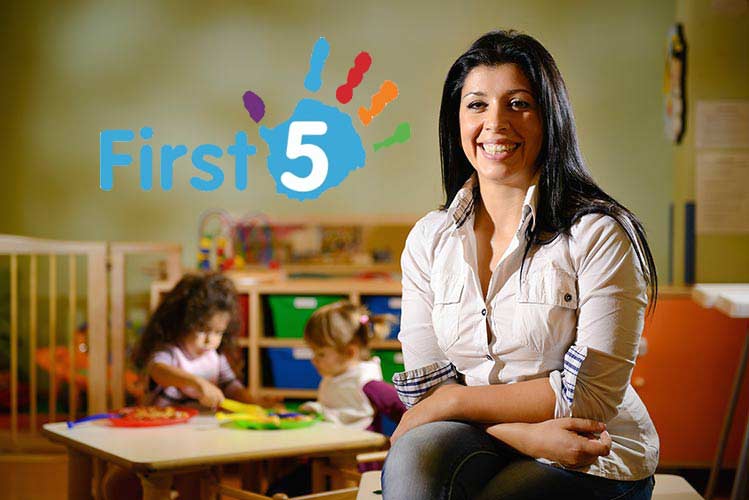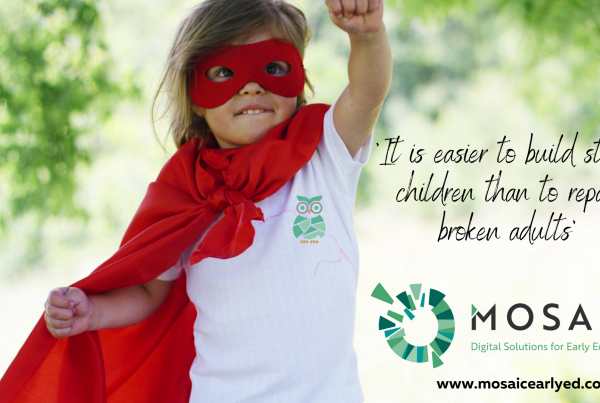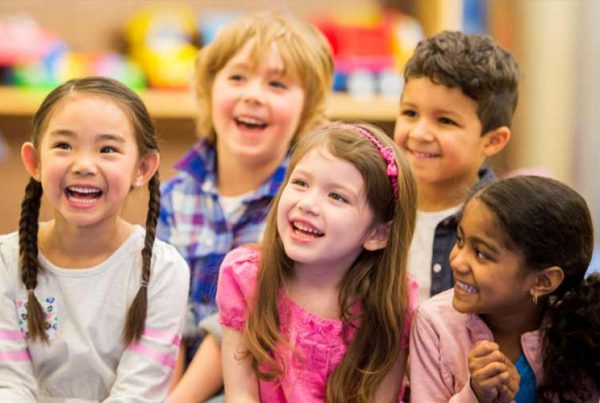First 5, A Whole-of-Government Strategy for Babies, Young Children and their Families
The Government unveiled ‘First 5’, Ireland’s first ever cross-Departmental strategy to support babies, young children and their families on 19th November 2018.
The ambitious ten-year plan will deliver:
1. A broader range of options for parents to balance working and caring
2. A new model of parenting support
3. New developments in child health, including a dedicated child health workforce
4. Reform of the Early Learning and Care (ELC) system, including a new funding model
5. A package of measures to tackle early childhood poverty.
1. Access to a broader range of options for parents to balance working and caring led by the Departments of Justice and Equality and Employment Affairs and Social Protection.
In order to support children to spend more time with their parents, especially in the first year, First 5 sets out plans to develop a new parental leave scheme. This will deliver extended entitlements to paid leave for both fathers and mothers. A hot meals initiative for children in disadvantaged schools will also be developed.
2. New Developments in Child Health
First 5 sets out new measures to promote positive health behaviours and the mental health of babies, young children and their families, and to enhance the National Healthy Childhood Programme. Plans to develop a dedicated child health workforce were announced, focused initially in areas of high population density and disadvantage.
3. A new model of parenting support led by a new Parenting Unit established by the Department of Children and Youth Affairs
First 5 streamlines and improves existing parenting supports provided across a range of Government Departments and State Agencies. Accessible, high-quality information and guidance will be made available for parents to promote healthy behaviours, facilitate positive play-based early learning and create the conditions to form and maintain strong parent-child relationships. A continuum of parenting services – ranging from universal to targeted – including high-quality parenting programmes, will also be made available.
4. Reform of the Early Learning and Care (ELC) system led by the Departments of Children and Youth Affairs and Education and Skills
First 5 builds on the very significant developments in ELC over recent years and seeks to further improve affordability, accessibility and quality. Measures include introducing the Affordable Childcare Scheme, moving progressively towards a graduate-led professional ELC workforce and the extension of regulations and supports to all paid childminders and school-age childcare services.
Under this, Minister Zappone announced her plans to at least double investment in ELC over the next decade building on the unprecedented 117% increase in investment in ELC that has been secured over the last four years.
“More funding, even if it reaches these record levels, is only part of the answer,” the Minister warned. “We must ensure public funding is allocated efficiently, fairly and that it is targeted in the correct manner to deliver the best results for children.
This additional investment will continue to reduce the out of pocket cost of ELC to parents. It will compensate providers so that they can deliver ELC on a sustainable and high-quality basis. Importantly, it will be used to attract and retain a well-qualified workforce, enabling continued professional development across their career and creating more supportive working conditions so that the workforce feel valued”.
This will be achieved through a radical reform of the funding model for ELC with work commencing on that model to commence in early 2019.
5. A package of measures to tackle early childhood poverty
First 5 identifies new measures that will address poverty in early childhood, including expanded access to free and subsidised ELC, extensions to the Warmth and Well-Being and Warmer Homes Schemes and the introduction of a meals programme and DEIS-type model for ELC settings.
The implementation of First 5 will be overseen by the Department of Children and Youth Affairs. A detailed implementation plan will be published in the coming months.




